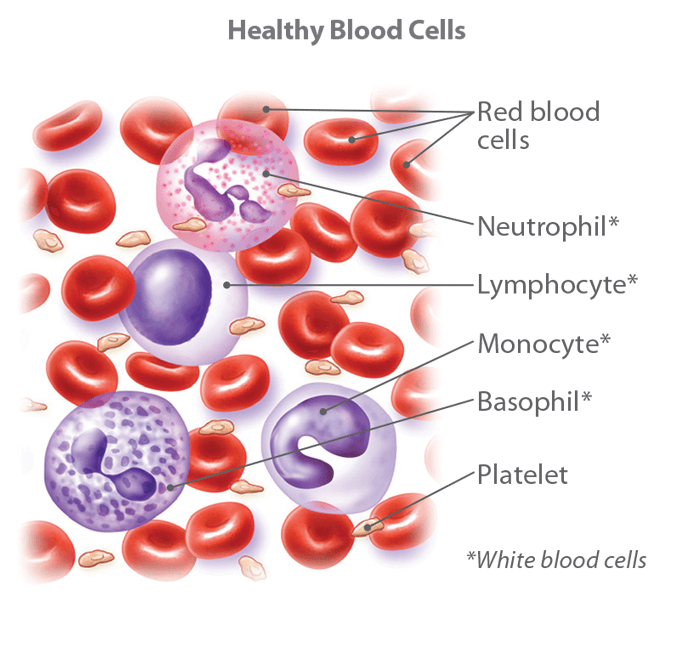What is Blood Cancer Treatment?
Blood cancer treatment refers to the specialized medical interventions used to treat cancers of the blood and bone marrow, including leukemia, lymphoma, and multiple myeloma. These treatments aim to eliminate cancer cells, restore healthy blood cell production, and manage symptoms.
Types of blood cancer include:
- Leukemia: A cancer of blood-forming tissues that affects the production of white blood cells.
- Lymphoma: A cancer of the lymphatic system, which includes lymph nodes, spleen, and bone marrow.
- Multiple Myeloma: A cancer of plasma cells, which are responsible for producing antibodies.
The choice of treatment depends on the type and stage of cancer, as well as the patient’s overall health.
Symptoms of Blood Cancer
Symptoms that may indicate blood cancer include:
- Fatigue: Persistent tiredness that doesn’t improve with rest.
- Frequent Infections: Weak immune system leading to recurring illnesses.
- Unexplained Weight Loss: Significant loss of weight without trying.
- Easy Bruising or Bleeding: Frequent nosebleeds, gum bleeding, or bruising.
- Swollen Lymph Nodes: Painless swelling in the neck, armpits, or groin.
- Bone Pain: Persistent pain in bones or joints.
- Night Sweats: Excessive sweating, especially during sleep.
- Shortness of Breath: Difficulty breathing, even during mild activities.
- Pale Skin: Anemia causing a noticeably pale complexion.
If you experience any of these symptoms, consult an oncologist for evaluation and diagnosis.
How Blood Cancer is Diagnosed
Blood cancer is diagnosed using a combination of medical history, physical exams, and specialized tests, including:
- Blood Tests: Complete Blood Count (CBC) and blood smear to detect abnormal cells.
- Bone Marrow Biopsy: A procedure to examine bone marrow for cancer cells.
- Lymph Node Biopsy: Removing and analyzing lymph node tissue.
- Flow Cytometry: A test to identify cancer cells based on their surface markers.
- Imaging Tests: CT scans, MRIs, or PET scans to detect the spread of cancer.
- Cytogenetic Analysis: Examining chromosomes in blood or bone marrow cells for abnormalities.
- Molecular Testing: Identifying genetic mutations associated with blood cancer.
Blood Cancer Treatment Options
- Treatment for blood cancer depends on its type, stage, and severity. Options include:
- Chemotherapy
- The most common treatment for blood cancer, using drugs to kill or inhibit the growth of cancer cells.
- Radiation Therapy
- High-energy radiation is used to target and destroy cancer cells in specific areas of the body.
- Immunotherapy
- Boosts the immune system’s ability to fight cancer by using drugs like checkpoint inhibitors or CAR T-cell therapy.
- Bone Marrow Transplant (Stem Cell Transplant)
- Replaces diseased bone marrow with healthy stem cells to restore normal blood cell production.
- Targeted Therapy
- Uses drugs to target specific proteins or genes involved in cancer cell growth.
- Surgery
- May be necessary to remove tumors or affected lymph nodes in some cases of lymphoma.
- Clinical Trials
- Access to experimental therapies that may be effective for specific blood cancers.
Benefits of Blood Cancer Treatment
- Improved Survival Rates: Early and advanced treatments can significantly enhance life expectancy.
- Minimized Symptoms: Treatments help manage pain, fatigue, and other symptoms.
- Targeted Care: Personalized approaches based on individual cancer profiles.
- Enhanced Quality of Life: Therapies reduce the burden of the disease, improving overall well-being.
- Potential Cure: In many cases, blood cancer treatment leads to remission or long-term recovery.
Why Choose Healtour for Blood Cancer Treatment?
- Expert Oncologists: Our specialists have extensive experience in diagnosing and treating blood cancers, including leukemia and lymphoma.
- Advanced Therapies: We offer the latest treatments, including CAR T-cell therapy, targeted therapies, and bone marrow transplants.
- Comprehensive Support: From diagnosis to recovery, we provide emotional, psychological, and physical support for patients and families.
- State-of-the-Art Facilities: Our hospitals are equipped with cutting-edge technology for accurate diagnosis and effective treatment.
- Patient-Centered Care: We prioritize patient comfort and satisfaction, offering compassionate care at every stage.
Steps to Begin Your Blood Cancer Treatment Journey
- Consultation: Schedule a meeting with our oncologists to discuss your symptoms and medical history.
- Diagnosis: Undergo necessary diagnostic tests to confirm the type and stage of blood cancer.
- Personalized Treatment Plan: Based on the diagnosis, we’ll create a customized treatment plan tailored to your needs.
- Therapy Sessions: Begin treatment, including chemotherapy, immunotherapy, or other therapies as recommended.
- Follow-Up Care: Regular check-ups and monitoring to ensure treatment success and manage any side effects.
Contact Us for Blood Cancer Treatment
If you or a loved one is facing a blood cancer diagnosis, we’re here to help. Contact us today to schedule a consultation with our expert oncologists and receive advanced, compassionate care.
Frequently Asked Questions (FAQs) About Blood Cancer Treatment
- What is blood cancer?
Blood cancer refers to cancers that affect the blood, bone marrow, or lymphatic system, such as leukemia, lymphoma, and multiple myeloma.
- What are common symptoms of blood cancer?
Symptoms include fatigue, frequent infections, easy bruising, swollen lymph nodes, weight loss, and bone pain.
- How is blood cancer treated?
Treatment options include chemotherapy, radiation therapy, immunotherapy, bone marrow transplants, and targeted therapies.
- What causes blood cancer?
The exact cause is unknown, but risk factors include genetic mutations, family history, exposure to radiation, and certain infections.
- Can blood cancer be cured?
Many types of blood cancer can be treated effectively, leading to remission or long-term recovery. The outcome depends on the type, stage, and individual factors.
- Is a bone marrow transplant necessary for all blood cancers?
No, it depends on the type and stage of the cancer. Bone marrow transplants are often recommended for aggressive or relapsed cases.
- What is CAR T-cell therapy?
A cutting-edge immunotherapy that modifies T-cells to recognize and attack cancer cells, particularly effective for certain blood cancers.
- How long does blood cancer treatment take?
Treatment duration varies, ranging from several months to years, depending on the type and stage of cancer and the treatment plan.
- Is blood cancer treatment covered by insurance?
Most insurance plans cover blood cancer treatment, but coverage details vary. Check with your provider for specific information.
What are the side effects of blood cancer treatment?
Common side effects include fatigue, nausea, hair loss, low blood counts, and infections. Your healthcare team will help manage these effects.

